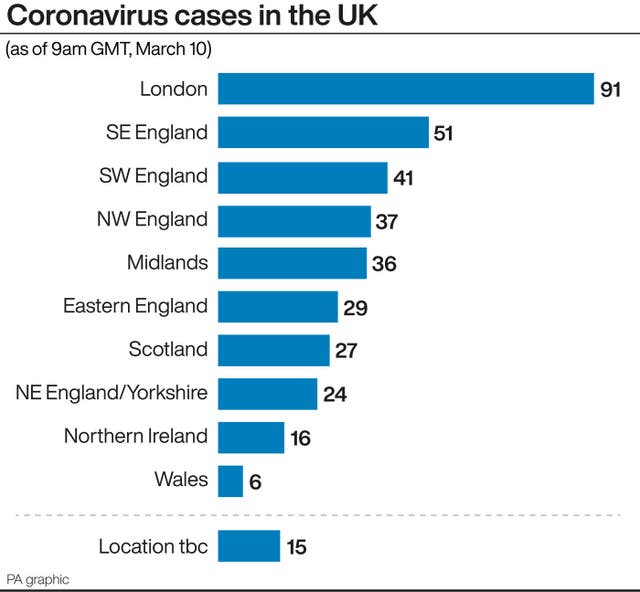Coronavirus: Internet providers ‘ready’ to handle extra demand from home workers
A growing number of companies across the world may have to resort to home-working.

The UK’s internet service providers have said they are “ready” to handle any extra broadband demand if more people work from home as a result of the coronavirus outbreak.
A growing number of companies across the world have resorted to allowing staff to work remotely where it is possible to do so.
Public Health England has already urged people to start asking employers about opportunities to work from home in case they need to self-isolate.
Google and Microsoft have moved to make more of their online video-conferencing technology available for free to help businesses deal with the situation.
Andrew Glover, chair of the Internet Services Providers’ Association (ISPA), which represents the industry, said: “ISPs are ready to handle any potential extra bandwidth and consistently assess the demands that are being put on their networks.
“Businesses and companies will need to ensure that their own systems, eg their server set-up, support a potentially significant increase in remote connections to accommodate the potential increase in traffic from their employees.”
The association says the types of applications that people use heavily in the evenings at home, such as Facebook and Netflix, use more bandwidth than typical working tools like emails, document collaboration software or even voice and video conferencing.

“We’re confident that the UK’s broadband network could handle home-working on a mass-scale,” a spokesman for the firm said.
However, some experts are less convinced, fearing quality and speed could be at risk.
“Should the UK find itself in a similar position to Italy, where the entire country is on a travel lockdown and up to a third of inhabitants are self-isolating, then there is every chance that the quality and speed of home broadband could be compromised as companies struggle to keep up with the universal demand of staff attempting to work or keep themselves entertained from home,” Mark Pocock, home communications expert at broadbandchoices.co.uk.
“We would advise those who are concerned about potentially having to self-isolate at some point to check the status of their current broadband package and current speeds to ensure they can get online.
“Rural areas are more likely to notice a coronavirus induced slow-down of service, as the technology put in place might not be able to withstand the strain of such a surge of people using their internet all at once and for multiple devices/purposes.”
Dr Aboubaker Lasebae, from the Computer Science department at Middlesex University, told the PA news agency: “It seems that demand will exceed the norm that we have, so there will be some problems I envisage – though I cannot verify that at the moment.
“In the UK, we’re equipped much better than anywhere else, especially in the southern European countries, so I think in the UK, we’re OK at the moment.”





